In this article, we’ll be discussing the long-term benefits of a water softener on your home, including its effects on your appliances, plumbing, and fixtures, as well as its positive impact on your utility bills and monthly budget.
By this point in your journey, you likely know what a water softener is and how it works. Just in case, we’ll briefly cover what hard water is and how a water-softener system has been used to treat this very common issue in thousands of homes just like yours before moving on to a more in-depth look at how this device can make a large impact for your home and your wallet.
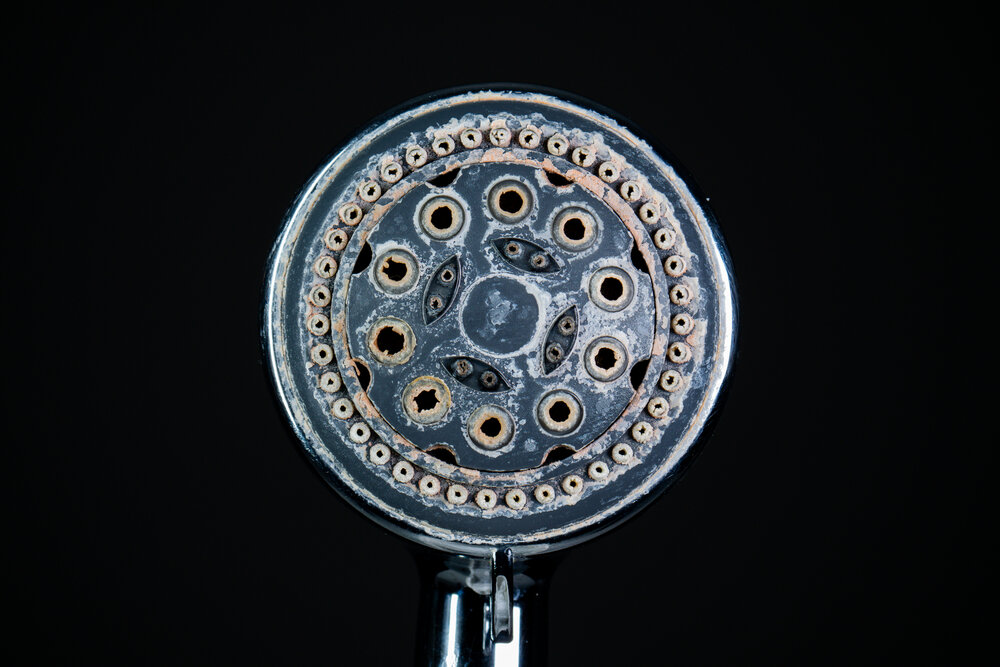
A Brief Overview of Hard Water
According to the United States Geological Survey, water hardness is the amount of dissolved calcium and magnesium in the water. Hard water is high in these dissolved minerals.
These excess minerals cause mineral deposits in your pipes, fixtures, appliances, and on your skin. This scale can reduce the lifespan of your appliances, raise the costs of heating the water in your home, diminish the efficiency of your water heater, and even clog up your plumbing.
If you have problems with soap scum or scale buildup in your shower, or calcium buildup in your coffee pot, chances are, you have hard water. You’re not alone! 85% of homes in the United States have hard water.
What is a Water Softener System?
In short, Water Quality Products Magazine describes water softeners as point-of-entry applications that provide whole-home benefits. As water flows through the water softener system, positively charged calcium and magnesium ions are attracted to negatively charged ions in the resin bed. They stick to the resin, and at the same time, positively charged sodium ions are released into the water, replacing the calcium and magnesium with sodium. This process helps to keep the buildup of excess minerals out of your pipes, appliances, fixtures, and laundry and off your skin.
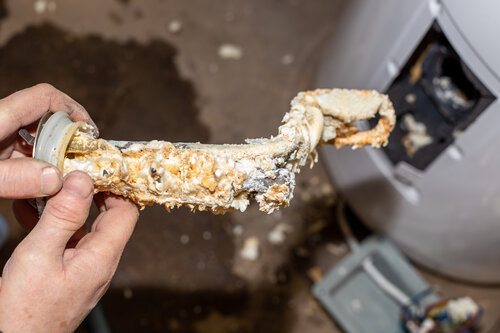
What are the Long-Term Benefits of a Water Softener?
There are some immediate benefits to using a water softener. They can positively affect your hair and skin, but there are some very impactful long-term benefits to using a water softener as well.
Impacts on Household Plumbing and fixtures
Over time, as hard water moves through the pipes in your home, layers of scale can build up inside of them. This mineral buildup reduces the overall diameter of the pipe resulting in less water movement through the plumbing and reducing water pressure to the home or specific fixtures.
With the excess minerals reduced in your water supply, this buildup is much less likely to occur, meaning that your plumbing will last longer and that issues with water pressure, from plumbing at least, will be minimized.

Extended lifespan and Increased Efficiency of Appliances
Hard water can create this same type of mineral buildup in your water-using appliances. Soft water can help to eliminate this buildup. Not only does using soft water extend the lifespan of your appliances, but it also increases their efficiency.
The Water Quality Association posted an independent research study conducted by Scientific Services S/D, Inc., a research and development laboratory that provides testing services to detergent, household products, and chemical specialty industries. The study showed that dishwashers were able to remove significantly more soil from dishes when run with softened water versus hard water. Dishes also showed fewer spots and less film buildup when the use of soft water was employed.
Depending on the soil level, reducing the hardness was also found to be up to 12 times more effective at soil removal than increasing the amount of detergent used. Hardness reduction was approximately 6 times more effective at reducing spotting and twice as effective at reducing filming than increasing the amount of detergent used.
In another study by Battelle Memorial Institute, whose core mission is to use science to do the greatest good for humanity, they found while testing gas and electric water heaters that none tested with hard water were even able to make it through testing. This was because they weren’t able to maintain sufficient flow due to scale buildup in the outlet piping system. This testing only equated to 1.25 to 2 years of standard use. You can see the summary of those results in the table below.
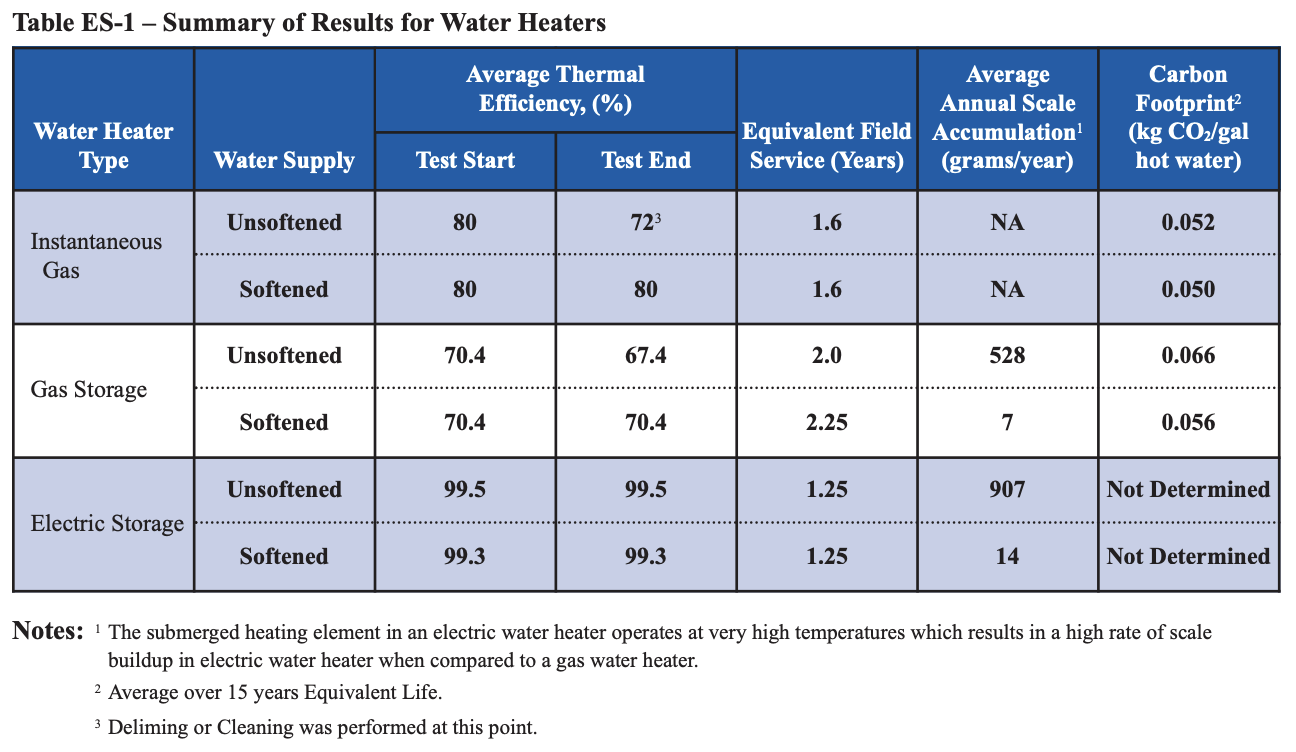
Cleaner Laundry
This buildup isn’t limited to dishwashers. All major water-reliant appliances are impacted, including your washing machine!
Scientific Services S/D, Inc. also completed a study that compared the impact of the amount of detergent used, water hardness, and wash temperature on the effectiveness of common household laundry detergents in removing stains. Blood, coffee, grass, red wine, barbecue sauce, and ground clay were among the substances that were tested.
The study showed that reducing the hardness of the water was much more effective at removing stains than either increasing the temperature or the amount of detergent used. Even when half of the detergent was used at a lower temperature, soft water improved the quality of the wash compared to when hard water was used.
Using a water softener doesn’t only help keep your laundry cleaner. As a bi-product, your laundry will also feel softer and more comfortable on your skin.
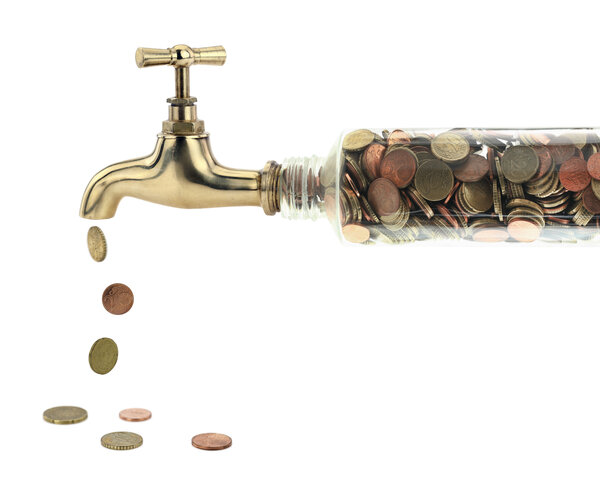
This Leads to Improved Household Efficiency
If softened water makes this kind of tested impact on the major appliances mentioned above, you can assume that it impacts other water-reliant appliances and fixtures like your coffee pot, water and ice dispensers, humidifier, and even fixtures like your shower head in similar ways. Less mineral buildup simply means higher efficiency. If your appliances are running more efficiently, not only are they going to last longer and require replacement less often, but they’ll also save you money in other ways.
Soft Water Leads to other Cost Savings
Some appliances, like gas water heaters, use less energy to operate when they are fed with soft water. In the water heater study mentioned above, Battelle found that natural gas savings associated with the use of softened water will lead to direct energy and economic savings, while higher water hardness will lead to greater energy consumption and greater energy costs.
Using soft water, as mentioned above, allows you to use less detergent in washing machines, even at lowering the temperature of your wash while still maintaining or improving performance. This means you can save energy.
You’ll also be able to use less detergent in your dishwasher to achieve the same results. Over time, that adds up to a huge savings for your family. In fact, detergent savings of up to 70% were observed for dishwashing machines when softened water was used compared to hard water. That’s a lot of dishwashing detergent!
You’ll also save hours from scrubbing hard water buildup from appliances, fixtures, showers, and tubs, and we all know that time is money.
All this means longer appliance life, lower energy usage, and less detergent, soap, and cleaning products down the drain.
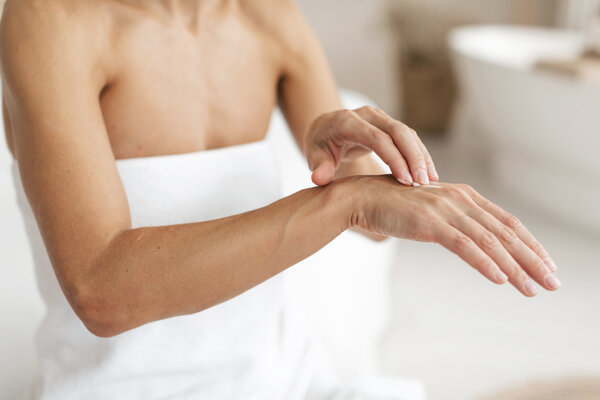
Enhanced personal benefits
If you require less soap for laundry and dishes when using a water softener, you’ll also need less soap and shampoo when bathing. Soap is just more effective when used with soft water. You’ll even get a better lather. How nice!
What’s not nice is the fact that hard water builds up on your skin, causing a layer that inhibits the body’s natural oils. These oils are what keep your skin from drying out. This interference with the body’s natural process can lead to excessively dry skin, clogged pores, and even acne. It also makes your lotion less effective.
When you use a water-softening system, you can protect your skin from this buildup. Your skin will feel cleaner, it will look healthier, and you won’t have to apply lotion nearly as often.
At EcoWater SoCal we’ve been helping families in the Southern California area soften their water for over 18 years. It’s more than a water-softening system to us, it’s the health of our local homes and the overall impact on the lives of those in our community.
Call us today at 760-259-2306 or fill out the form below to have your water tested and see which system is right for your home.
Verified Southern California Reviews
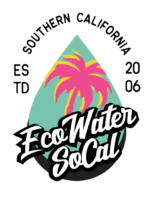
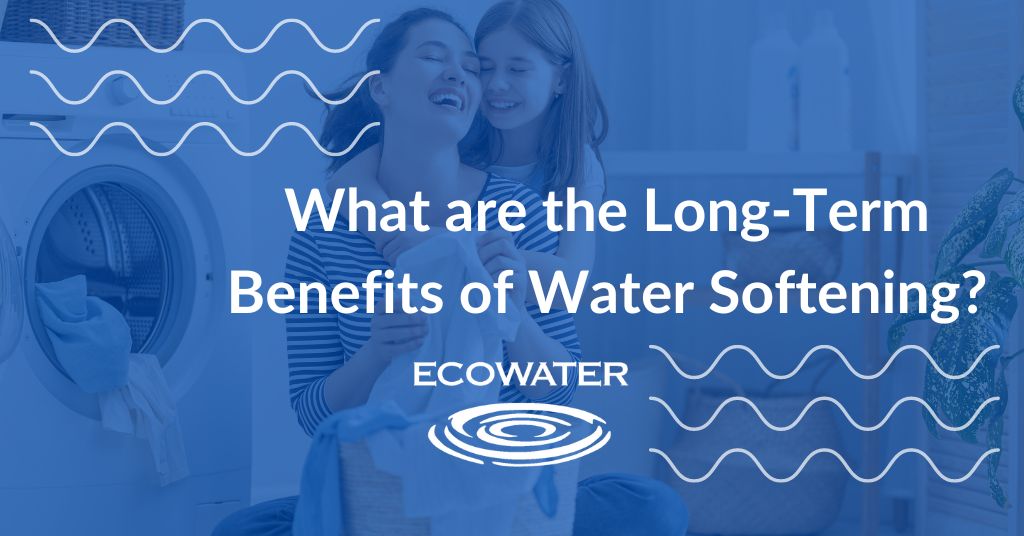
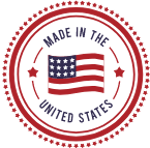

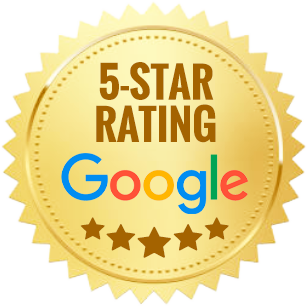

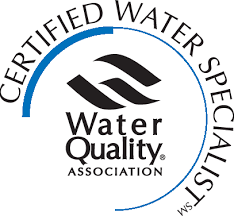




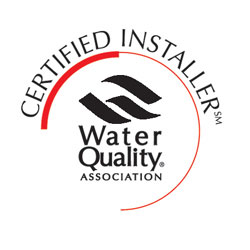

Recent Comments